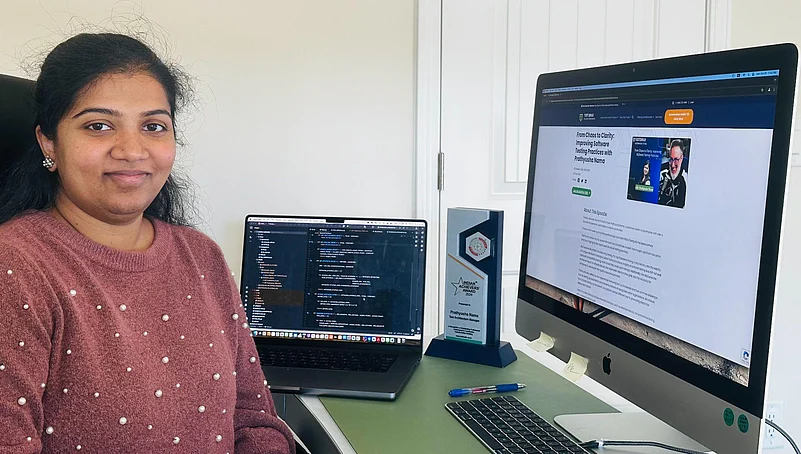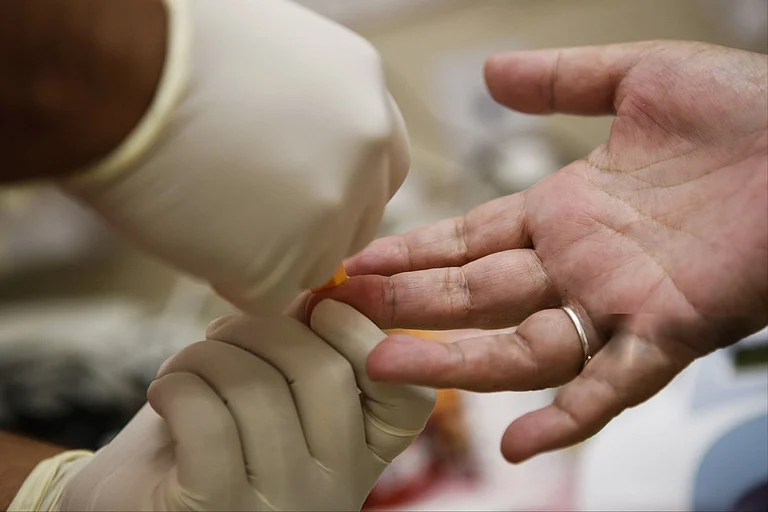Her innovations at Align Technology have redefined industry standards, combining artificial intelligence with sophisticated automation to achieve what many considered impossible just a few years ago.
The cornerstone of this breakthrough is the revolutionary "Pyramid to Platform" testing strategy, a radical departure from traditional testing methodologies. Her innovative framework has shattered previous limitations, achieving a stunning 70% reduction in manual testing efforts while cutting critical defects by 25%. Most remarkably, testing cycles that once stretched across weeks are now completed in mere days, accelerating the delivery of crucial healthcare innovations to medical practitioners worldwide.
Behind these impressive metrics lies an even more significant technological achievement. Under Nama's guidance, her team engineered an AI-powered testing ecosystem that can automatically validate complex medical imaging features - a breakthrough that has long been the holy grail of healthcare software testing. This advancement addresses one of the industry's most persistent challenges: ensuring the reliability of AI-driven diagnostic tools while maintaining rapid development cycles.
The scale of success is unprecedented. The platform now processes over 25 million medical images with a remarkable 99% accuracy rate, supporting more than 140,000 healthcare practitioners across 106 countries. This global reach was made possible through another innovative development: an intelligent device testing farm that automatically adapts to different platforms, languages, and regional requirements.
Infrastructure costs have plummeted by 40% thanks to the pioneering cloud-native testing architecture. This sophisticated system employs advanced containerization and orchestration technologies, enabling unlimited scalability while maintaining stringent healthcare compliance standards. Building on Nama's expertise in cloud architecture, the breakthrough has caught the attention of major healthcare technology providers, with several already beginning to adopt elements of this transformative approach.
Perhaps most impressive is the platform's ability to test AI-driven medical features. Through innovative use of synthetic test data and automated verification systems, the framework can validate complex diagnostic algorithms with unprecedented thoroughness. This capability has particular significance in the healthcare sector, where the reliability of AI-driven features directly impacts patient care.
The mobile healthcare landscape has been similarly transformed. Under Nama's leadership, a sophisticated mobile testing infrastructure was developed that can simultaneously validate applications across multiple devices and operating systems. This system has proven crucial for Align Technology's global expansion, enabling rapid deployment of healthcare applications while maintaining rigorous quality standards.
The impact of these innovations extends far beyond immediate technical achievements. By dramatically reducing testing time while enhancing reliability, this breakthrough has accelerated the pace at which new healthcare technologies can reach patients. Drawing from Nama's extensive experience in healthcare compliance, the framework's ability to automatically verify regulatory requirements has simplified a process that traditionally required extensive manual oversight.
Looking ahead, even more ambitious innovations are in development. Advanced AI models for automated test generation and predictive analytics promise to further revolutionize how healthcare technology is validated. These next-generation capabilities aim to identify potential quality issues before they emerge, pushing the boundaries of what's possible in software testing.
The implications for the healthcare technology sector are profound. This comprehensive testing strategy has established a new paradigm for companies seeking to accelerate innovation while maintaining stringent quality standards. Nama's methodical approach to quality assurance demonstrates that with sophisticated, AI-driven testing approaches, healthcare technology companies can dramatically accelerate their development cycles while enhancing product reliability. This has resulted in widespread acclaim and Nama has been awarded the prestigious ‘Indian Achievers Award’ for the pioneering work.
Industry analysts are calling this transformation a watershed moment in healthcare technology development. The success of this approach provides a blueprint for the entire sector, suggesting a future where testing is increasingly automated, intelligent, and proactive. As artificial intelligence continues to reshape healthcare delivery, these pioneering contributions to testing and quality assurance are helping to ensure that revolutionary medical technologies are not just innovative, but demonstrably safe and reliable for patient care.
The impact of this work reaches beyond individual organizations to the healthcare industry as a whole. By establishing new standards for testing efficiency and reliability, this breakthrough is accelerating the pace of medical technology innovation while ensuring the highest levels of quality and safety. As healthcare continues its digital transformation, these innovations in testing methodology are proving instrumental in bringing advanced medical technologies to patients faster and more reliably than ever before.


























